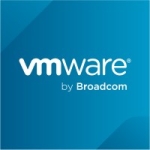What is our primary use case?
While I cannot say for certain, I believe that we are using the latest version.
We primarily use the solution to rent servers for storing certain commercial applications.
What is most valuable?
I especially like the flexibility and scalability of the solution. It is totally scalable.
What needs improvement?
While feasible, custom configuration will be more time consuming than standard, although we have not encountered many instances which required us to seek support or advice.
For how long have I used the solution?
I believe we have been using Amazon AWS for more than 10 years.
What do I think about the stability of the solution?
The solution is absolutely stable. This is one of its best features.
What do I think about the scalability of the solution?
The solution is absolutely scalable.
Amazon allows us to scale up and then down, something important to one of our customers who was in need of temporary increases in the throughput provided to the servers. This allowed us to meet the client's needs for the days or weeks that they required more dynamically located servers, after which we were able to scale down. This we were able to do through Amazon. This was difficult to accomplish beforehand, as the client had private servers for which he was forced to buy machines which he would subsequently keep.
How are customer service and support?
I cannot comment on Amazon's technical support, as we have not made use of it.
Which solution did I use previously and why did I switch?
We did use other solutions prior to Amazon AWS. We made use of local service and dealt with projects involving Google and Microsoft. We also used Microsoft Azure.
Not long ago we used Microsoft Azure, though this is necessary with some of our projects. We have different projects which vary with the customer's specifications. Some utilize Azure, although most require the use of Amazon.
When comparing Microsoft Azure with Amazon AWS, I do not see much disparity. It really comes down to a business choice. If the customer is familiar with Microsoft, then the testing team maintaining the product will need to be acquainted with it as well and its ongoing use is required. Similarly, Amazon will continue to be employed if this is already the case. As such, the difference betwen the solutions does not come down to considerations of a technical nature as they are largely similar. The primary consideration is one of business, the use of one solution and provider over another.
How was the initial setup?
When it comes to standard configuration, the installation is quick, usually taking one or two days to complete. Custom configuration, while feasible, takes somewhat longer. So far, we have not had many instances in which we required support or advice concerning custom configurations.
The technical team would be in a better position than I to address any technical issues involved in the setup. From my perspective as a project manager, I feel what we have to be sufficiently good. There is much advertising, information on the advantages of the product and guides available.
What about the implementation team?
Installation was carried out by our own internal integration team, not externally outsourced. I did not handle it myself. It was done by a team specialist.
The technical team responsible for the deployment consists primarily of engineers.
What was our ROI?
I cannot comment on whether we have seen an ROI, return on investment, as I do not possess this information.
What's my experience with pricing, setup cost, and licensing?
The licensing cost varies with the project involved. Certain projects run around $6,000 per month, some less and others more. We handled many projects, each with its own complexities and specifications. The price ranges of the licenses varies with the complexity of the project.
What other advice do I have?
Broadly speaking, there is a need to rely on specialists for properly setting up one's accounts and addressing his needs. This is not specific to Amazon, however, but is something prevalent with all providers.
I have assumed the role of both customer and integrator. In the past, I worked as a project manager with different projects employing Amazon products, services and software.
For the most part, the solutions I used have been public, not private, such as AWS cloud.
The number of users of the solution varies with the individual project. This can range from 20 to 200 to 500 users.
Our teams have undertaken every role, be them architecture, development, design or testing. They are all internally integrated.
I am a fan of Amazon products and generally recommend them to others. Of course, we employ Azure and Google products when the customer specifically requests these.
Since all products have room for improvement, even when this is not apparent to me, I rate Amazon AWS as a nine out of ten.
If public cloud, private cloud, or hybrid cloud, which cloud provider do you use?
Amazon Web Services (AWS)
Disclosure: My company does not have a business relationship with this vendor other than being a customer.


















